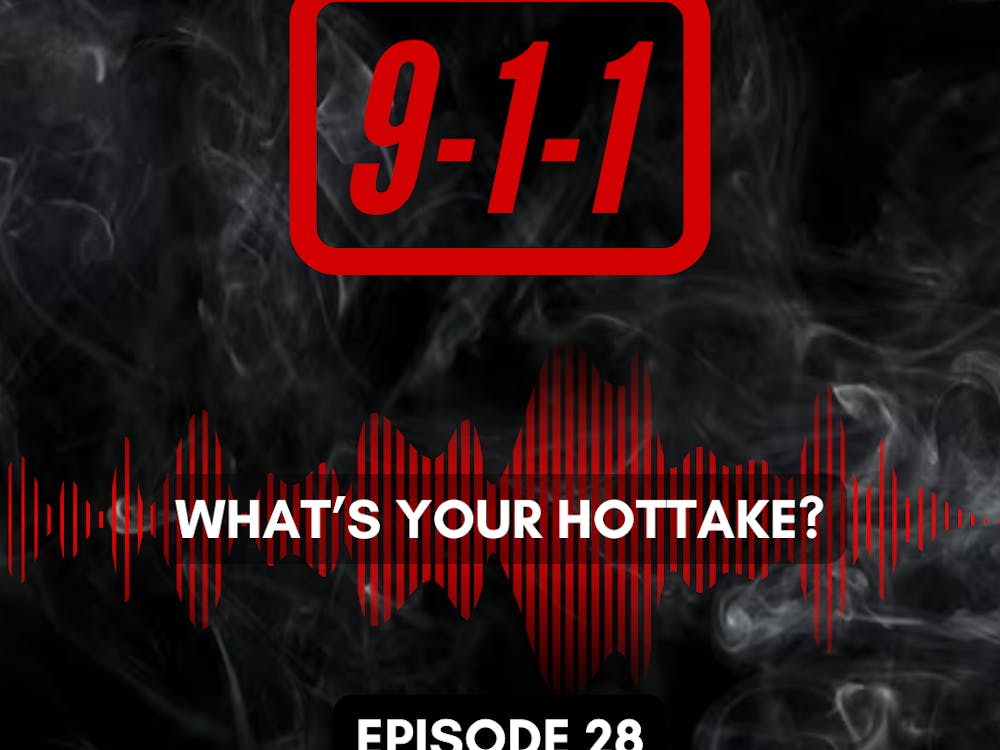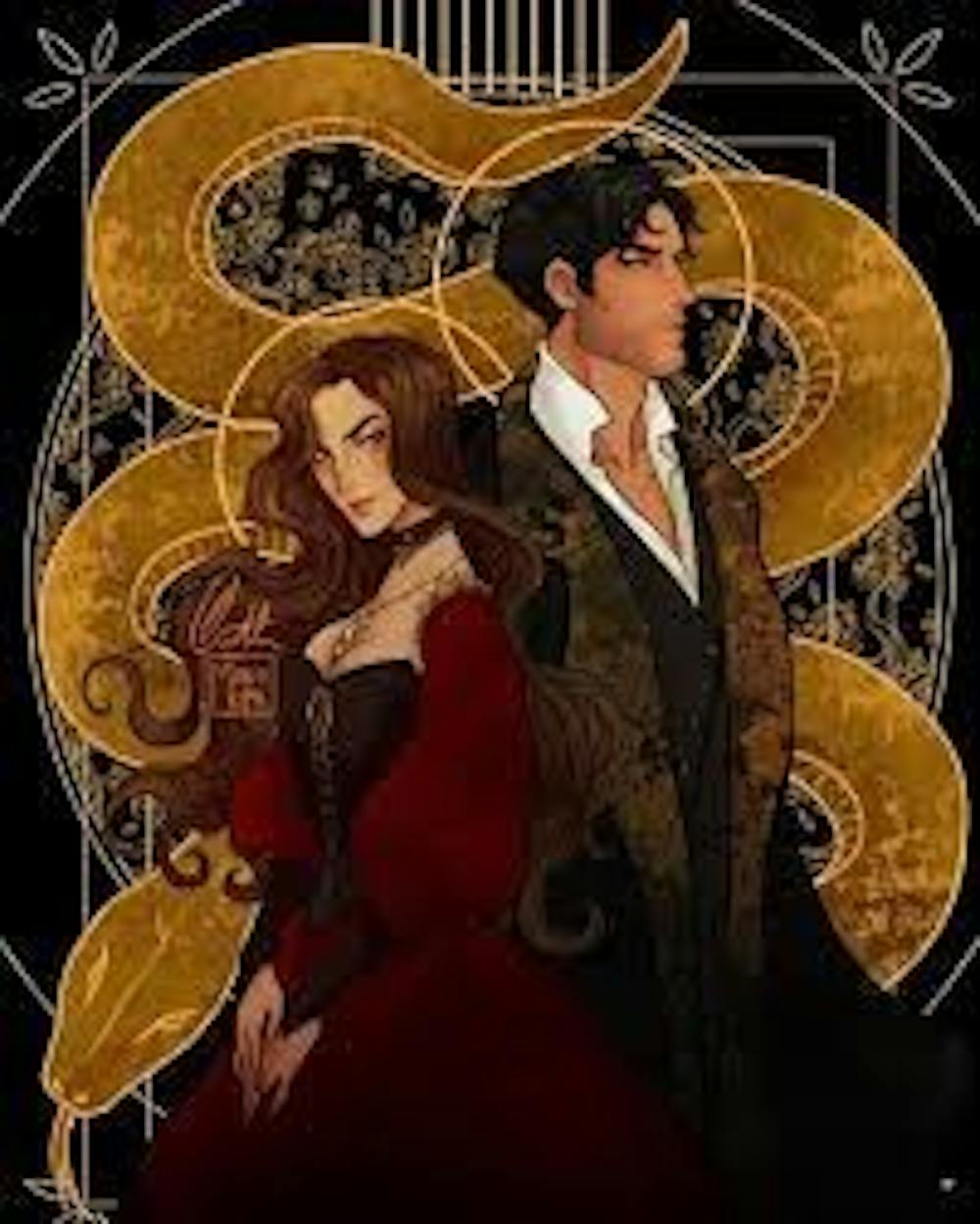Kingdom of the Feared is the third and final installment of Kerri Maniscalco’s Kingdom of the Wicked Trilogy. The first book threw readers into a world of witches, vampires, werewolves, and demons. Emilia, a mortal witch, and Wrath, a Prince of Hell, took the stage begrudgingly bound to one another in the investigation of the murder of Emilia’s twin sister, Vittoria. The second novel ramped up the stakes, and the spice, ending with a shocking reveal. Kingdom of the Feared, published on Sept. 27, continues to follow Emilia and Wrath as they now investigate the death of an important general from House Greed, all while trying to keep Emilia’s not-so-dead twin sister from going down a dark path of death and destruction.
While the general idea seems intriguing, this book did not hold up to the quality of Maniscalco’s other series or even the previous two books within this series. Almost everything she had built up to fell flat. The plot, the characters—nothing felt developed, which led to a rather disappointing end to such an anticipated release. A huge disconnect from this book with other books within the fantasy young adult/new adult genre is the lack of romance between the characters, which I found to be completely unsatisfying. Especially when I take into consideration that Maniscalco can write characters with chemistry. She created my favorite ship in her previous series Stalking Jack the Ripper.
A lot of chemistry with little reaction
Emilia and Wrath’s original appeal was the enemies-to-lovers banter included in the beginning of the series, but that is completely turned on its head in Kingdom of the Feared. Instead of being able to hold a conversation, the pair simply resort to ripping one another’s clothes off. In fact, Emilia cannot be in the same room as Wrath without her mind drifting toward sex. It’s constant smut, and not in a good way. The novel reads as nothing more than a bad fanfiction instead of the published novel it’s supposed to be. At times it feels like Maniscalco doesn’t know how to prove to the audience that Emilia and Wrath have feelings for one another without smut. Sex does not equal romance, which is clear because the smut soon becomes bland, repetitive, and does not do anything to build a strong foundation to put any sort of stakes in their relationship. Not once before this did it seem like they had feelings for one another, just an intense sexual desire.
Smut Ex Machina
Even more so, it is rare that the two are apart. Meaning what was supposed to be an intricate and exciting plotline has been shoved off to the side. Many grand events are solved within the matter of two pages having little to no consequence reverberate throughout the book. Half of the conflicts could be removed from the novel and it’s likely no one would notice. Even the grand, overarching storyline seems easily rectified. With Maniscalco giving readers all the answers, it feels as though nothing happens in Kingdom of the Feared. At least, not when Emilia and Wrath get anywhere near each other.
Moments where the plot does begin to pick up, it often falls flat for other reasons—or one particular reason. Such as poisonous wounds that resolve themselves for the sake of getting Emilia and Wrath back together, or Emilia’s role as a damsel in distress for the billionth time this series so Wrath can come save her, or a full-on war ending before it can even begin so Emilia and Wrath can get back to porking... a pattern emerges. The most development that happens is when Emilia does not have an active role. Maniscalco certainly uses too many prophecies and flashbacks to propel the story, but at least these scenes actually have something happening.
Nine levels of character hell
Part of the shortcomings could be Emilia as a character. For a final novel, it is expected that some growth would have occurred, but Emilia appears to be as naïve as when the series first began. A female character who holds a lot of power is not the same as a strong female character, which Maniscalco clearly doesn’t understand. Not only that, but she also has the most repetitive internal monologue I have ever seen in a book. I ended up skipping parts of chapters simply because exposition was being regurgitated for the third time in a row. It’s frustrating that the characters you’re supposed to care about (i.e. the main character) do little for the novel as a whole.
Likely because the only developed character seems to be Vittoria, who originally starts out as a caricature of an old-timey villain. She’s one of the only characters who does something and has realistic, if not skewed, motivations. The more she was explored, the more drawn in I was. There were finally bonds worth exploring. Emilia and Vittoria did more propelling for the plot than the main duo the book was supposed to be focusing on. Then Maniscalco dismantles all the good work she’s doing by having her become yet another character obsessed with Emilia for reasons I cannot figure out seeing as she’s been utterly useless for three whole books.
On top of that, the Princes of Hell seem flat. The intricacies of their political wars that had been built up during the second book almost don’t matter anymore, and while their brotherly banter is entertaining, it does nothing to add substance to the book. It’s like they were there to remind the audience of how they had once been a key part of the story but weren’t anymore. Maniscalco even manages to make Wrath go from an interesting love interest with a twisted soul to nothing more than an object. Literally. Every page he and Emilia spend together are filled with her objectifying him. Problematic, but ultimately overlooked because he’s the classic (and borderline toxic) overly protective type that makes young readers swoon.
Writing highlights from Tumblr’s
heyday
This isn’t the only time Kingdom of the Feared comes off as cheap writing either. Emilia’s inner monologue sounds more like a middle schooler’s first attempt at being poetic rather than holding anything with substance. Half the metaphors are either nonsense or made me cringe and close the book for a couple seconds to recuperate. If Maniscalco wasn’t so focused on trying to make Emilia "not like other girls," or Wrath a fantasy mafia boss but written way worse, then there could have been potential to see some of her own creativity shine through. Instead she focused on shoving as many popular tropes as she possibly could into her writing in an attempt to pander to the audience. Such as her reliance on the trope of a female character giving up something greatly important to her for the greater good when she easily could have focused on developing the plot to avoid such an overused cliché in the first place. Of course, that would mean throwing out half the unnecessary plot twists she managed to jam in. Everything felt completely half-baked without a clear picture of how Maniscalco wanted to write it, let alone present it.
All the magic, with none of the magic
There was so much potential in the world building, characters, and magic system that ultimately seemed to take a backseat to fashionable tropes and an unnecessary amount of smut. Nothing felt resolved at the end, there were still plenty of questions left unanswered, and it didn’t give the satisfying ending the final book in a trilogy is supposed to leave readers with. Part of me fears that Maniscalco will choose to create a spin-off series featuring side characters introduced throughout the series. Likely pitting two women against one another for a man who is canonically unfaithful, and overall not deserving of either of them—a path I hope Maniscalco avoids. If they’re treated anything at all like the characters and plot in this novel were, then Maniscalco will be solidifying her legacy as just another author pandering to BookTok audiences with mediocre development and an overabundance of smut rather than delving into what a beautiful world she could’ve created instead.

Sources:
Goodreads, Goodreads, Goodreads, Goodreads
Photos:



















